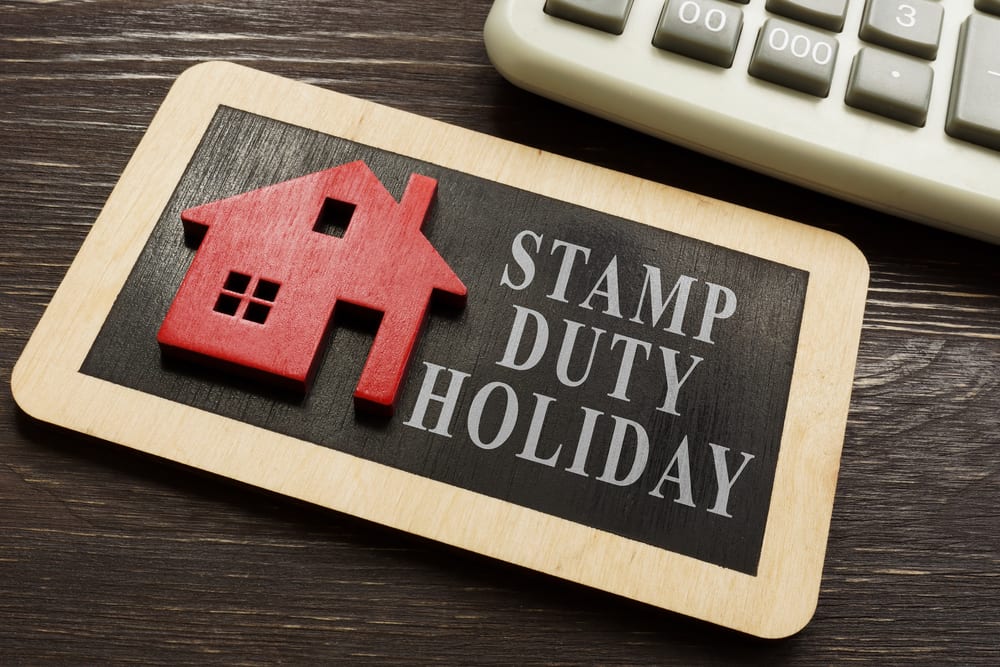
by cwms | May 8, 2025 | Mortgage Advice, Mortgage News, Uncategorized
Your Path to Homeownership: Essential Advice for First-Time Buyers
Embarking on the journey to buy your first home can feel overwhelming, but it doesn’t have to be. With the right strategies, tools, and a little patience, you can turn your dream of homeownership into reality. Here are some essential tips for first-time buyers to guide you through the process.

Start Saving Early
The first step towards buying your own home is to start saving as early as possible. Creating a dedicated savings plan can significantly impact your ability to secure a mortgage. Consider setting up a high-interest savings account specifically for your home purchase. Regular contributions, even if they are small, can accumulate over time and put you closer to your down payment goal. Additionally, consider cutting back on discretionary spending to boost your savings rate.
Exploring Low-Deposit Mortgages
Low-deposit mortgages can be an excellent option if you don’t have a substantial amount saved up for a down payment. Many lenders now offer products that allow first-time buyers to put down as little as 5% of the property value. This can significantly reduce the initial financial barrier to entry. However, with higher deposits you get a better interest rate on your mortgage. Research and compare different lenders to find the right interest rates and terms to suit your financial situation.
Understanding Shared Ownership and New Builds
Shared ownership schemes can be a great way to step onto the property ladder without buying a home outright. This model allows you to purchase a share of a property, typically between 25% and 75%, while paying rent on the remaining share. If you’re considering buying a new-build home, look into programs like Own New, which often offer additional incentives for first-time buyers. Coombes & Wright are approved brokers for Own New, a nationwide scheme funded through a subsidy paid for by the builder. Own New’s ‘Rate Reducer’ is for people buying a new build property and offers a unique mortgage with access to lower interest rates and reduced monthly payments during the initial mortgage period. By combining these opportunities, you can make homeownership more affordable and less daunting.
Professional Mortgages for Newly Qualified Buyers
If you’ve recently completed your qualifications in a professional field, explore professional mortgages explicitly tailored for new graduates or those in fields like healthcare, law, and finance. These specialised products often come with favourable rates and flexible criteria, recognising the higher earning potential of your new career. Engaging with lenders who understand your profession can help you navigate the purchasing process more smoothly.
At Coombes & Wright, our mortgage experts support you at every step, from your first enquiry to successful completion and picking up the keys. We manage the complete mortgage and protection process for you, including all application paperwork and admin, liaising with your lender, solicitors, estate agent or new home builders. Book a free, no-obligation initial consultation to chat through your options. We will get you well on your way to owning your dream home. Happy house hunting!
Book your free no-obligation initial consultation

by cwms | Jan 10, 2024 | Mortgage Advice, Protection Advice
Using a mortgage and protection broker can save you time and worry, handling everything from searching for a deal to applying and communicating with the lender on your behalf. In today’s busy world, we could all benefit from having a calmer, more stress-free life, so here are our top 9 reasons for using a broker…

1. Access to Better Deals & Products
Banks and lenders can only access their own products. By contrast, brokers look at a broad range of mortgages and broker-exclusive deals. We have access to over 65 lenders to find suitable products to meet your needs whether you’re a first-time buyer, remortgaging, moving house or a buy-to-let investor.
2. Manage all the Admin and Legwork
The Coombes & Wright team look after the complete mortgage and protection process for you, including all application paperwork and admin, liaising with your lender, solicitors, estate agent or new home builders. This can be daunting and stressful if you’re unfamiliar with all the jargon and processes. Don’t worry. We do all the legwork so you can relax! With advisers across Hertfordshire in Brookmans Park, Potters Bar, St Albans, Hertford and Abbots Langley, plus London, and Dover and Canterbury, Kent. We offer appointments at a time and location to suit you and are available to answer questions and provide advice.
3. More Streamlined, Less Stressful
As brokers, we deal with lenders daily. We know the application process and background criteria for each to ensure you encounter minimal delays.
4. Benefit from Expert Knowledge
Mortgage brokers have expert knowledge of the mortgage and protection market and can recommend deals that suit your personal situation. We access software to search products faster and more thoroughly than you could. We have day-to-day experience with which lenders are most likely to accept you and help you avoid applying for deals you’re unlikely to get (which can negatively impact future applications).
5. You’re Fully Protected
Brokers have a duty of care to recommend suitable mortgage and protection products and must be able to justify our recommendations. You can complain and be compensated if our advice is not up to scratch.
6. Honest Peer-to-Peer 5-Star Reviews
As consumers in 2024, checking out a company’s customer reviews is second nature. We’re incredibly proud to have over 650 5-star reviews across Google, Trust Pilot and Facebook, reassuring you of our commitment to excellent customer service.
7. Industry Experience
We know the industry – Mortgage criteria have tightened massively over the last few years, with arguably the most comprehensive ranges of products on offer. Affordability tests and checking processes are in place to protect consumers but understandably increase application complexity and timescales. That’s why it’s so important to stay in the loop – and to have a broker on your side who understands it all.
8. On Your Side
Brokers are on your side and work for you! We search for the most favourable mortgages and protection products to meet your individual circumstances. We aren’t on the lender’s side. You get unbiased advice and can choose from a range of lenders and subsequent products rather than being restricted to a single range directly from a lender.
9. Fully Qualified
Brokers are qualified – There’s a lot to consider when choosing a mortgage or protection product such as life insurance or income protection. It’s not as simple as just opting for the cheapest deal. Mortgage & protection brokers must be qualified to give you advice.
So, there you have it, our top 8 reasons to use Coombes & Wright Mortgage Solutions for your next mortgage, remortgage or protection product.
Book your free no-obligation initial consultation

by admin | Sep 24, 2021 | Mortgage News
You may need a mortgage for decades but you don’t necessarily have to stay on the same mortgage for all that time. In fact, you should make periodic checks to determine whether or not you’re still on the best deal. If you’re not, you should move as quickly as possible. Here is a brief guide to help.
Plan ahead
This is probably the single most important tip of all. When you sign up for a mortgage you will be told when your initial deal ends. That basically gives you a deadline to work towards. Be sure to allow yourself ample time to do thorough research before your current deal ends. Remember to allow extra time for holiday periods such as Christmas.
Keep your credit rating in good order
There are all kinds of reasons why this is important. Maximising your options for remortgaging is just one of them. At a minimum, try to avoid putting yourself in a situation where you’re going to have to repair damage to your credit rating. Where possible, take proactive steps to boost it. For example, make sure that you’re on the electoral register at your current address.
Check your credit record for errors before you start applying for new mortgages. Do this well in advance so you have plenty of time to get mistakes corrected. Remember, a lot of businesses (and organisations) are probably going to be working through the backlog of COVID19 for quite some time to come.
If you know your credit rating has taken a hit, possibly due to COVID19, then commit to seeing a mortgage broker. They may be able to find you a deal you wouldn’t have been able to access yourself. In any case, you have nothing to lose by trying – and potentially a lot to gain.
Aim to minimise your LTV ratio
The LTV ratio (or loan-to-vehicle ratio) describes the value of your loan as compared to the value of your home. This is where remortgages can have a massive advantage over regular mortgages. If you’ve been in your current home for a while, you’ll have paid off some of your mortgage. There’s also a decent chance that your home will have increased in value.
This means that even if you haven’t been able to make savings over the last year or so, you could still be an attractive prospect to a lender. If you have been able to make savings, you might want to consider putting them towards reducing your mortgage.
You would have to move carefully here. If you leave yourself short of savings, you could end up having to take out consumer credit. This could leave you worse off than if you’d just paid extra on your mortgage. On the other hand, if you can reduce your mortgage principal and maintain a decent “cash cushion” you could save yourself a lot of money.
Speak to your current lender
Never just assume that your current lender will offer you the best deal on your remortgage. At the same time, never just rule them out either. Find out what they can offer you so that you can compare it with your other options.
Check-in with a mortgage broker
It is literally a mortgage broker’s job to know the mortgage market inside out. Even if you’re a highly desirable customer, using a mortgage broker can save you a lot of time. If you know that you have hurdles to overcome, then a mortgage broker can help move them out of your way.
In particular, if you’ve seen your credit rating and/or finances damaged by COVID19 definitely speak to a mortgage broker about your options. They may still be able to find you a much better deal than your lender’s Standard Variable Rate.
For more information, please get in touch

by admin | Sep 17, 2021 | Mortgage News
It’s lovely if you can pay off your mortgage before you retire. In reality, however, that isn’t always feasible. This means that it can be useful to look at your options for dealing with a mortgage while in retirement.
Downsizing
If you want to move to a smaller property anyway, then astute downsizing can go a long way towards dealing with an outstanding mortgage. The key word in that sentence, however, is “astute”.
To make downsizing work financially, you need to find a suitable property at a suitable price. This price needs to be low enough to make it worth your while to pay all the expenses associated with moving. Ideally, the property should also have low running costs. If not, then it should have the potential to be upgraded and this should be reflected in the price.
If all these conditions are met, then downsizing can be a way to release equity from your current home while still allowing you the benefits of home ownership. Even if it doesn’t pay off the mortgage completely, it should lower your repayments and hence make them easier to manage.
Selling up and renting
This is essentially a variation of downsizing. You swap mortgage repayments for more affordable rent payments. You also release the equity in your old home to use as you wish. Although you might feel hesitant about returning to renting it does have its advantages.
In particular, disposing of your property can make a significant difference to a future Inheritance Tax bill. If you choose to make gifts out of the equity now and live for a further 7 years, those gifts are excluded from IHT calculations. Even if you die within 7 years, the gifts may still be eligible for taper relief.
Equity release
Equity release plans come in two main forms. With a lifetime mortgage, you borrow against the value of your home. The interest can be waived until you die, at which point it is paid out of your estate. Alternatively, you may be able to make repayments during your lifetime.
With a home reversion plan, you essentially sell a stake in your home. When you move on, the proceeds from the sale of your home are split between you and the lender in an agreed percentage.
Although the basics of both products are simple, using either form of equity release can have major financial implications. For example, the cash you receive by releasing your equity can affect your entitlement to means-tested benefits. It’s therefore essential to get professional advice before making any decisions.
Retirement mortgages
Retirement mortgages are essentially variations of regular interest-only mortgages. The key variations are that there is no set term and that there is no need to have a plan to repay the capital. Instead, you make interest payments each month for as long as you remain in the property and then when you move on, the property is sold to pay off the capital.
It is, however, important to note that, as with regular mortgages, your home may be at risk if you do not keep up repayments. You can, however, exit the mortgage by selling the property. If you do, you could potentially benefit from capital appreciation although this is not guaranteed.
Monetising your property
If you don’t want to give up your property, you might want to consider turning it into a source of income. Possibly the most obvious way to do this would be to take advantage of the government’s “rent-a-room” scheme. Depending on where you live and the type of property you own, there may be others.
The disadvantage of this approach is that it could put you to some inconvenience you’d rather avoid. For example, you might not particularly want to have lodgers in your home. You may, however, decide that overall the pain is worth the gain.
For equity release products we act as introducers only

by admin | Jun 26, 2021 | Mortgage News
Barring any major surprises, it now really is the final countdown for the Stamp Duty holiday. Regardless of whether you’re a seller, a buyer, or both, organization will help you meet (or even beat) that deadline. Here are some tips to help.
If you’re selling and don’t have any offers
If you’re selling and you (still) don’t have any offers then you need to up your marketing game quickly. To begin with, make sure that your listing shows potential buyers everything that might interest them. Show and tell. In other words, make sure you have plenty of pictures and/or video as well as informative text.
In particular, highlight your ability and willingness to meet the Stamp Duty deadline. For example, mention the fact that you have already organized the necessary documentation. If you’re definitely moving, no matter what, mention that too. It shows buyers you’re serious.
Remember, you don’t have to stop at the options supported by the property portals and/or your estate agent’s website. For example, you could host a virtual home tour on YouTube (keep security in mind). You could also create videos to highlight the best features of your local area. In fact, you may not have to create them, you might be able to find them online.
You might also want to consider creating a website for your home. There are sites that will allow you to host a very basic website for free. You won’t get your own domain or any advanced functionality but you don’t need them.
If you’re selling and do have offers
Assuming you have more than one offer, choose your buyer astutely. In simple terms, the buyer who offers the highest price may not be the one with the best chance of making good on that offer. If your top priority is to beat the Stamp Duty deadline then you might want to play safe and go for reliability even if the buyer does offer a lower price.
Of course, in order for you to make an informed decision of any sort, you’ll need to know your buyers’ situations. If you’re working with a high-quality estate agent, they will take care of this for you and tell you everything you need to know. If you’re selling yourself then you’ll need to quiz customers yourself.
Online selling portals can be a bit of a grey area. Many of them now offer add-on services such as assistance from real-world sales agents. That said, you’ll have to do your own research on the quality of the service you can expect.
If you’re buying
If you’re buying then do your best to work with a seller who’s also motivated to help you beat the Stamp Duty deadline. Then make sure you do everything you can on your side to speed the process to completion. Here are three specific tips.
Get preapproved for a mortgage
For clarity, being approved for a mortgage “in principle” does not mean that a lender is committing to lending you up to that amount on any property. It is, however, useful guidance on how much you can borrow. As such, it is reassurance for a seller. It can also shorten the time needed for your eventual mortgage to be finalized.
Supercharge your mortgage application
From a buyer’s perspective, there are basically two parts to a mortgage application. The first is choosing your lender. The second is making the actual application. There is a third part, namely the approval process.
That happens at the lender’s side. As a buyer, however, you can speed it along by choosing the right lender and applying in the right way. A mortgage broker may be able to help with both points.
If you choose to apply directly, do your research very thoroughly and make sure you complete the application form exactly as you should. This may sound like stating the obvious but these documents can be lengthy and complex.
Get organized for conveyancing
Choose a conveyancer and be prepared to pay for quality and speed. Reviews my help here. Check that your preferred conveyancer works with your lender and see if they are a member of the conveyancing quality scheme.
Think carefully before securing other debts against your home. Your home may be repossessed if you do not keep up repayments on your mortgage
Please contact us for any more information.








Recent Comments